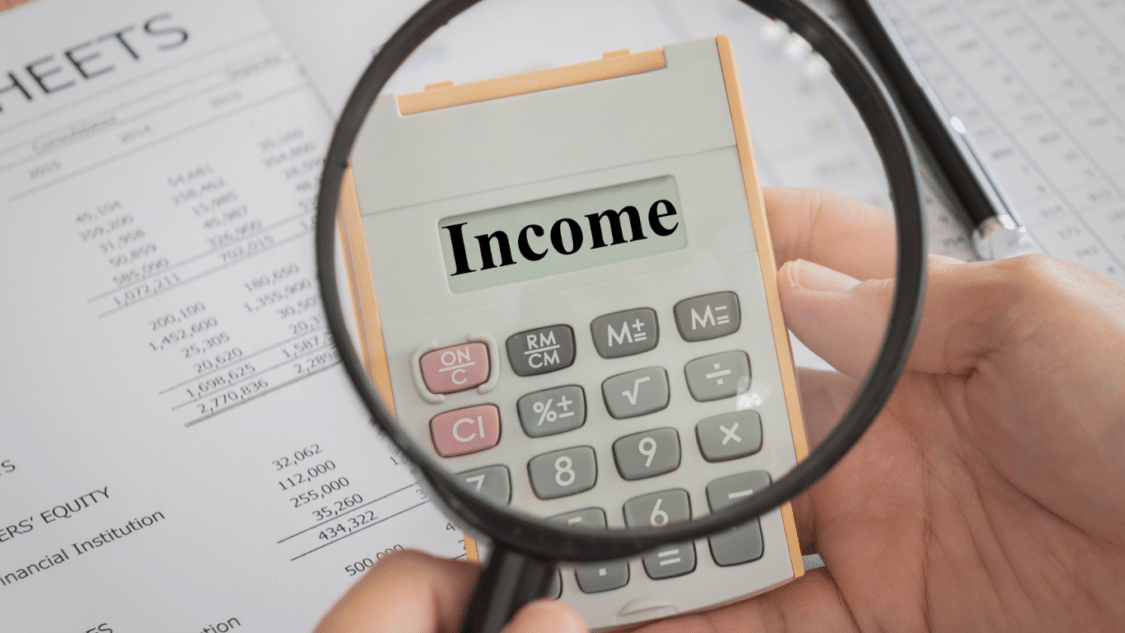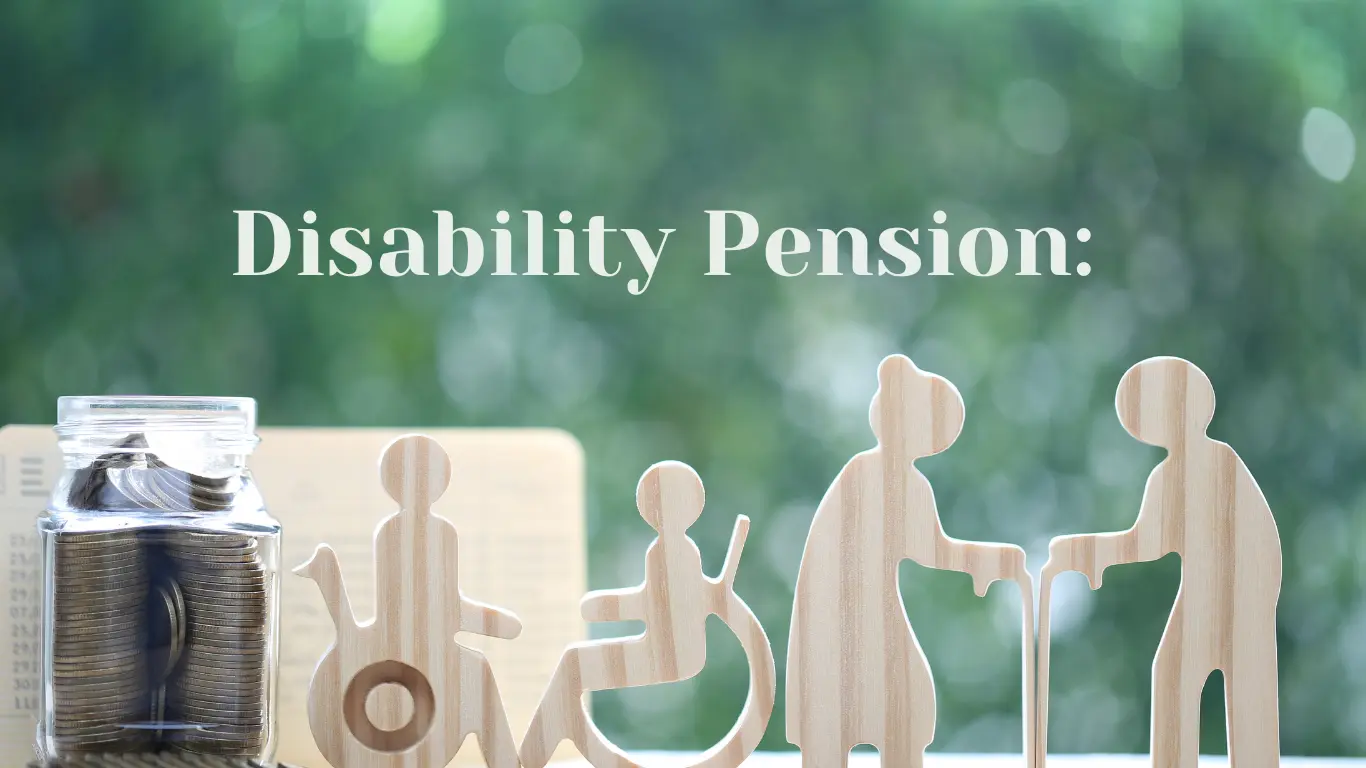Living with a disability presents unique challenges, both physically and financially. For individuals unable to work due to their disability, a disability pension provides a much-needed source of income. However, many disability pension recipients often wonder if earning additional income while receiving these benefits is possible. This article will dive into the nook and crannies of can you earn money while on disability pension. We will explore strategies for maximizing your income without jeopardizing your benefits.
The disability pension is a program created by the government to offer monetary assistance to people incapable of working because of a disability. It aims to assist individuals in meeting their basic needs and maintaining a decent standard of living. However, it is important to understand that a disability pension has certain limitations. One of the primary concerns for those receiving disability pensions is the potential impact on their benefits if they earn additional income.
Can you earn money while on disability pension?
Contrary to popular belief, it is possible to earn money while on a disability pension. Following certain rules and regulations is important to avoid impacting your benefits when earning money. These rules may vary depending on your specific disability pension program and the country in which you reside. It is crucial to familiarize yourself with these guidelines to ensure you do not inadvertently jeopardize your disability pension.
What type of documentation do I need to provide to my pension program if I start earning income?

As evidence of your earned income, your pension programme may ask for paperwork like pay stubs, work contracts, or tax returns. Maintaining accurate records and adhering to the reporting guidelines provided by your programme are vital.
How much money can you earn while on disability pension?
The amount of money you can earn while on a disability pension largely depends on the rules and regulations set forth by your disability pension program. It is essential to consult with your program administrator or a knowledgeable professional to determine the specific limitations that apply to your situation. However, we can provide some general insights into the factors that may influence how much can a disability pensioner earn.
Factors to consider:
- Work incentives: Some disability pension programs offer work incentives that allow individuals to earn income without affecting their benefits. These incentives encourage disabled individuals to reenter the workforce and become financially self-sufficient. Understanding the work incentives available can help you maximize your income without sacrificing your disability pension.
- Disability severity: The severity of your disability may also impact the amount of money you can earn while on a disability pension. Some programs have income thresholds that vary based on the severity of your disability. It is important to understand how your disability is classified and how it may affect your ability to earn income.
- Type of disability: Certain disability pension programs may have specific rules regarding the work you can do while receiving benefits. For example, if your disability restricts you from performing physical activity, you may be limited to certain types of desk-based or online work. Understanding these limitations can help you identify suitable income-generating opportunities.
Documenting your earned income:
When earning income while on a disability pension, keeping detailed records of your earnings is crucial. Accurate documentation will help you manage your finances effectively and ensure compliance with the rules and regulations of your disability pension program. Here are some tips for documenting your earned income:
- Keep receipts and invoices: If you are self-employed or a freelancer, keep all receipts and invoices related to your earnings. This will help you track your income and provide evidence if required by your disability pension program.
- Maintain a separate bank account: Consider opening a separate one for your earned income. This will allow you to keep your disability pension funds separate from your additional earnings, making it easier to manage and document your finances.
- Consult with a financial professional: If you are unsure how to document your earned income accurately, it is wise to seek advice from a financial professional. They can guide you through the process and ensure you maintain accurate records.
How to balance income and disability pension benefits?
While earning income while on a disability pension can provide financial stability and a sense of independence, it is important to strike a balance to avoid jeopardizing your benefits. Here are some factors to consider when balancing your income and disability pension benefits:
- Income thresholds: Familiarize yourself with the income thresholds set by your disability pension program. These thresholds represent the maximum income you can earn without affecting your benefits.
- Reporting requirements: Most disability pension programs require recipients to report any income or employment status changes. Failure to report your earnings accurately may result in the suspension or cancellation of your benefits. It is crucial to understand and comply with the reporting requirements of your program.
- Consider part-time work: If you are concerned about exceeding the income thresholds, consider exploring part-time or flexible employment options. This can help you balance earning income and maintaining your disability pension benefits.
By carefully considering these factors and understanding the limitations of your disability pension program, you can effectively balance your income and disability pension benefits, maximizing your financial resources while securing your disability pension.
How to maximize your income while on a disability pension?
While the rules and regulations surrounding maximize your income while on a disability pension can be complex, there are several strategies you can employ to maximize your income without jeopardizing your benefits. Here are some strategies to consider:

- Explore work-from-home opportunities: Working from home can provide flexibility and allow you to earn income while managing your disability. With the advent of technology, numerous remote work opportunities are available across various industries. Research and explore these options to find a suitable work-from-home opportunity that aligns with your skills and abilities.
- Develop transferable skills: Enhancing your skills and knowledge can open new income-generating opportunities. Consider investing in training or education programs to equip you with transferable skills. These skills can enable you to pursue alternative employment options more compatible with your disability.
- Start a small business: If you have a passion or a talent, consider starting a small business that aligns with your abilities. Starting a business lets you control your income and work on your terms. Conduct in-depth market research and develop a comprehensive business plan to increase the chances of success.
By implementing these tips for managing your finances, you can increase your earning potential while on a disability pension and create a more secure financial future.
What are alternative sources of income for disability pensioners?
In addition to traditional employment opportunities, disability pensioners can explore alternative sources of income to supplement their benefits. These alternative sources can provide additional financial stability and independence. Here are some alternative income options to consider:
Rent out property: If you own property, consider renting it out to generate passive income. Renting out a spare room or an entire property can provide a steady income stream without requiring significant physical exertion.

Invest in stocks or bonds: Investing in either stocks or bonds can yield long-term financial gains. It’s recommended that you seek guidance from a financial advisor to explore investment options that align with your risk tolerance and financial objectives.
Monetize your hobbies: If you have a hobby or a skill that can be monetized, consider leveraging it to generate income. Whether creating artwork, crafting, or offering consulting services, monetizing your hobbies can provide additional income while doing something you enjoy.
Tips for managing your finances:
Managing your finances effectively is crucial when earning income while on a disability pension. Here are some tips to help you navigate the financial challenges and make the most of your earnings:
- Create a budget: Develop a comprehensive budget considering your disability pension benefits, additional income, and expenses. This will help you track your earnings, allocate funds appropriately, and avoid overspending.
- Save for emergencies: Establishing an emergency fund to cover unexpected expenses is essential. Aim to save at least three to six months’ living expenses to provide a safety net during challenging times.
- Seek financial advice: If you’re uncertain about managing your finances effectively, seeking advice from a financial professional is a good idea. They can offer personalized guidance on budgeting, saving, and investing based on your unique circumstances.
Managing your finances effectively is an important step to increasing your income and ensuring a secure financial future. Here are some helpful tips to achieve these goals.
Conclusion – How much can I earn on the disability pension?
Earning income while on a disability pension can provide financial stability, independence, and a sense of purpose. Consider the impact on your disability pension benefits, the limitations set by your program, and your personal circumstances. By understanding the rules and regulations, documenting your earnings accurately, and implementing effective financial management strategies, you can maximize your income while safeguarding your disability pension benefits. Remember to consult with professionals and stay informed to make well-informed decisions that align with your financial goals and well-being.

